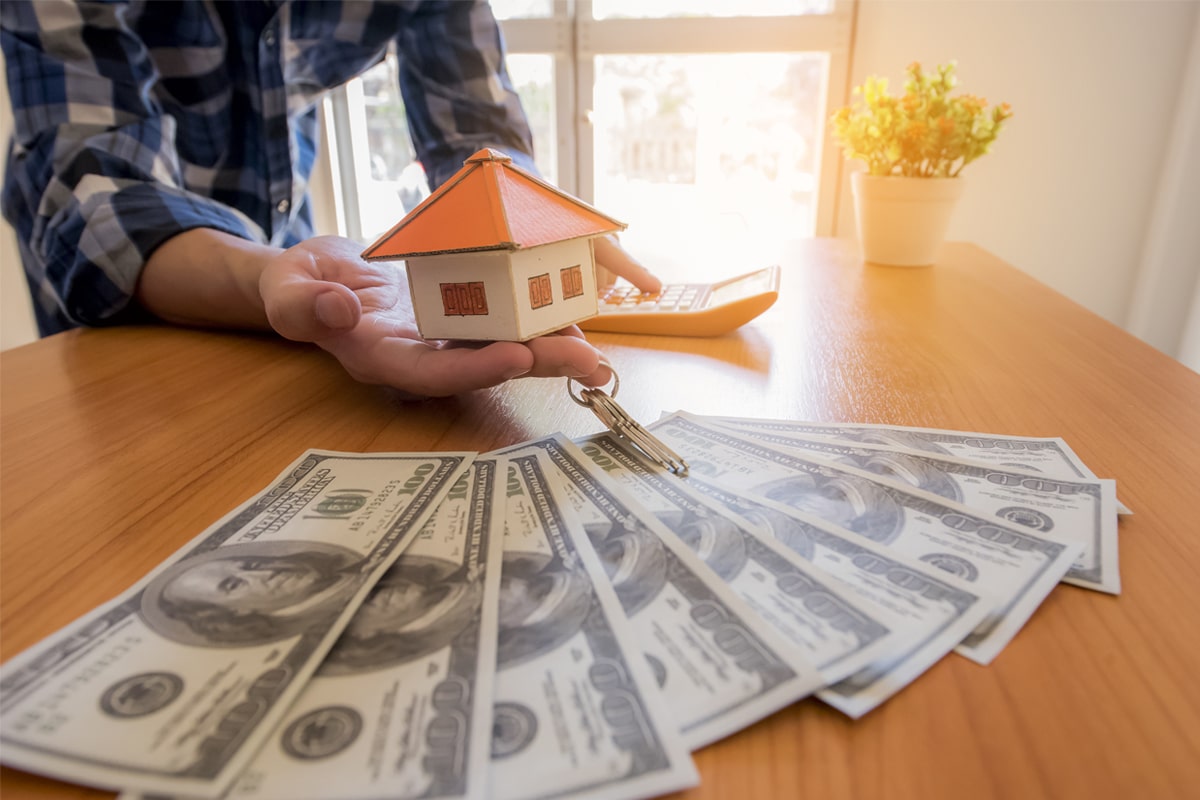Purchasing a home is likely one of the biggest financial investments you’re ever going to make. A loan officer will tell you how much you can borrow at a certain interest rate, but it’s critical that you thoroughly understand how much you can realistically afford to spend on a house.
Even if you are not normally comfortable with crunching numbers, this is too important of a decision to trust entirely to someone else. A NAEBA certified exclusive buyer agent will help you discover the true cost of home ownership.
Mortgage Payment
While it’s easy to find an estimate–there are many online calculators you can use–there are several elements that go into your monthly mortgage payment.

Put simply, your mortgage is the amount you plan to borrow minus your down payment. But there are a few other items included:
- Property Taxes
- Homeowner’s Insurance
- Closing Costs (if not paid upfront)
You can lower your mortgage payment if you’re willing and able to place a larger down payment. However, it also provides you lower cash reserves in case an emergency strikes.
Getting advisement from an experienced real estate agent is the best way to accurately estimate your mortgage payment.
Utilities
This is where things get vaguer. However, if you want to find out how much you can expect to expend monthly prior to your search, you will need to do some research. The Department of Energy provides a national average for electrical bills, but keep in mind weather and other factors play a large role in the end price.
Utility charges typically include heating, electrical, water, and perhaps sewer. And if you’re buying a home with solar panels, be sure to read this post about the associated costs.
It is important to note that utility bills can vary greatly from one house to another, even if they are in the same neighborhood. There are many factors to consider, such as the presence of new windows and energy efficient appliances.
Once you have narrowed down your search, you can ask the seller to provide you with several months’ worth of bills, although a year is ideal.
Repairs
This is an often overlooked cost. Even if you do not feel you need upfront construction, you will need to do repairs and maintenance (such as painting) as part of a home’s normal wear and tear. One mortgage data firm estimates you should budget 1% of the home’s cost annually. In states, a 2% figure is more realistic.

While you may not spend this amount every year, building up a reserve fund will help you pay the repair bill when the need arises.
Incidentals
You are going to have to make purchases since you are becoming a homeowner instead of a renter. You will have new responsibilities formerly handled by your landlord, like landscaping and minor repairs. There are many simple things you will need to quickly purchase, like a ladder, rake, and potentially a lawnmower or drill. While each item itself isn’t very expensive, the costs do add up.
Alternatively, you have to expend money if you plan on hiring someone to do these tasks for you.
There are also everyday living expenses. While your food and transportation costs may not change from what you are currently paying, you should still factor these into your budget.
Being Prepared for Homeownership
Homeownership is a wonderful thing. It is likely one of your life’s most expensive purchases, but it is also an asset that you hope appreciates in value. Going into home ownership prepared for the future can help prevent unpleasant surprises down the road.
A certified exclusive buyer agent can help you feel ready to take the next step and will be by your side every step of the way through your journey to becoming a homeowner. Review our list of agents today!

